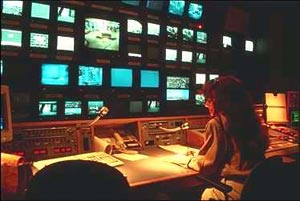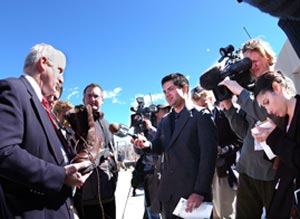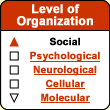|
|
|
|
 |
| Fear,
Anxiety and Anguish |
 |
|
|
|

 |
 |
 |
 |

 |
 |

 |
The elections that took
place in El Salvador and Nicaragua at close to the same time
in the mid-1980s offer a classic example of how two similar
events were treated in dramatically different ways by the
U.S. mass media, because the first was contrary to U.S. interests
while the second was favourable to them.
In covering the El Salvador elections,
the press presented the intervention of the guerillas as
something terrible. In contrast, in covering Nicaragua, where
the guerillas (known as "contras") were financed
by the U.S. government, their intervention was portrayed
as freedom-fighting.
Likewise, the U.S. mass media interpreted
the long line-ups at the polls in Nicaragua as proof that
the nationalist, socialist Sandinista regime was "dictatorial."But
the line-ups in El Salvador were portrayed as a sign of democracy.
(Later it was learned that the CIA had invested $2.1 million
in the campaign of Christian-Democrat Napoléon Duarte,
who was elected on May 6, 1984.) |
|
|
In totalitarian countries where a culture
of fear reigns, the control and censorship of the media by the
state apparatus are usually obvious. But in Western societies
with their privately-owned media, such control and censorship
are far harder to detect.
| But the propaganda is just
as effective, even though it may be disguised by occasional
attacks on specific cases of corporate fraud or government
incompetence, to give the appearance of free expression for
the common good. A closer look at how the mass media operate
quickly reveals the limited scope of the social debates that
they do present. Most of the time, it can be very instructive
to focus less on the disagreements among the various antagonists
and more on the assumptions that they share and that are never
called into question. |
|
 |
It is these assumptions, on which the major
print and television media corporations are founded, that Noam
Chomsky and Edward S. Herman have analyzed in detail in their
many studies on the media in advanced industrial societies. Since
Chomsky and Herman first propounded their “propaganda model”
of the media, it has been proven time and again by the facts. This
model shows how information is filtered imperceptibly through money
and power to give us a view of the world that conforms to the one
that the private interests and dominant
elite of the nation want to convey.
The filters employed by the mass media allow
only a limited range of metaphors to get through--chiefly those
that emphasize security, property, and fear of conflict with authority--while
suppressing those that emphasize concepts such as social equity
and redistribution of resources. The essential components of this
propagandistic model of the media comprise five main filters whose
cumulative effect is, as Herman and Chomsky put it, the manufacturing
of a predefined consent among the people who draw their information
from these media. These five filters are:
 |
|
1) the large size
of the companies that own the media, their growing concentration
in a smaller and smaller number of hands, and the priority
that these companies give to profits;
2) advertising as the primary source of revenue for
the major media;
3) the blind trust that these media place in official
sources of information, such as governments, companies, and
experts from public relations firms that are often on the payroll
of the institutions of power;
4) the criticisms that the powerful level at the media
and use to discipline them;
5) the hostility of the major media to any perspective
that is leftist, socialist, or otherwise progressive. |
The institutionalization of these media filters
serves to perpetuate social inequalities and a culture of fear.
These filters are so thoroughly integrated into the unconscious
of the journalists who work in the mass media that they wind up
honestly believing that they are objectively interpreting the information
that they receive.
|
|






